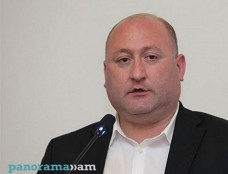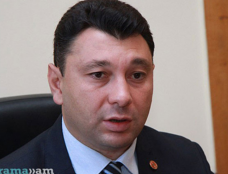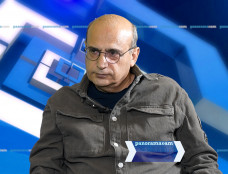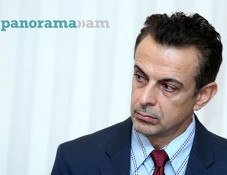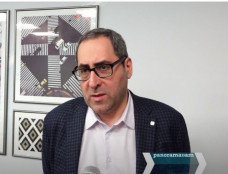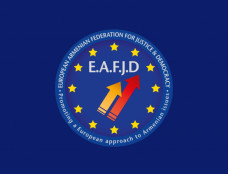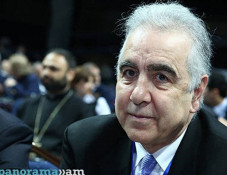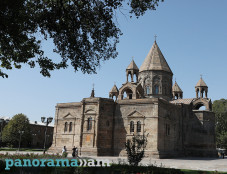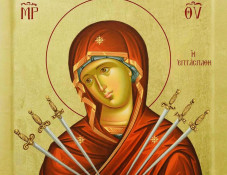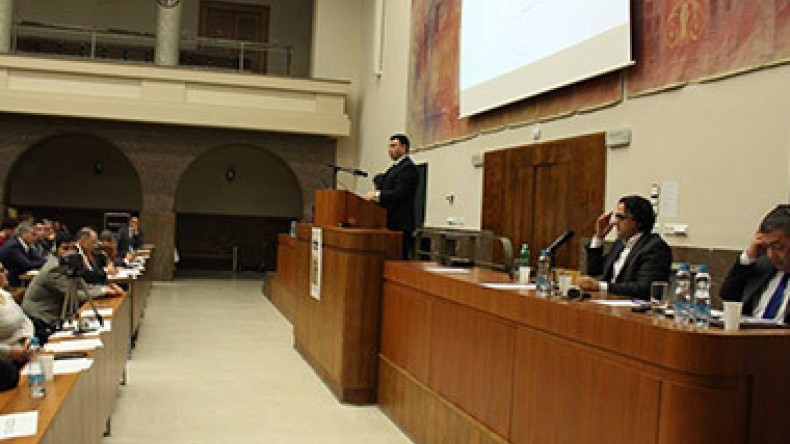
Sharmazanov: Turkey continues its traditional policy of denialism
On March 10, Deputy Speaker of Armenian National Assembly Edward Sharmazanov took part in the conference, titled “Crime of Genocide: Legal and Political Aspects,” at Charles University in Prague, where he delivered a speech-lecture, the parliament’s press service reported.
Together with the professors, lecturers and students, Ahmet Necati Bigali, Ambassador of Turkey to the Czech Republic, accompanied by the employees of the Embassy, attended the speech-lecture.
The text of his speech is below.
“Dear Academicians, Deans, Professors, Students, Ladies and Gentlemen,
The centennial of the Armenian Genocide is only a month away.
One and a half million Armenians fell prey to a crime that would find its proper name decades later. As you might know, the term “genocide” was first used in 1944 by Raphael Lemkin, a Polish legal scholar of Jewish origin. With this term Lemkin wanted to describe the atrocities committed against Armenians in the Ottoman Turkey in 1915.
As far back as in 1911, at the congress of the Ittihat ve Terakki in Thessaloniki a decision was made to murder the Armenians living in the Ottoman Turkey. The indigenous Christian population, in particular Armenian nation, was the main obstacle on the way to implement the Young Turks’ pan-Turkic plans. The Turks insist as if all this had not been planned beforehand – both Armenians and Turks became victims of deportation during WWI.
When WWI erupted, the government of the Young Turks, hoping to maintain the remains of the weakened Ottoman Empire, adopted the ideology of Pan-Turkism.
On 24 April 1915 the arrest and massacres of 600 Armenian intellectuals, members of the Ottoman parliament, as well as public figures marked the beginning of a crime which was initially planned and implemented at the state level by Ottoman Turkey, and which is known to the history of humankind as the first genocide of the 20th century. The crime aimed at depriving Armenians of their homeland. The massacres and ethnic cleansing were aimed at the extermination of Armenians, as well as the destruction of the millennia-old Armenian heritage.
Dear attendees,
I would also like to remind you that on May 24, 1915, the Triple Entente (Great Britain, France and Russia) gave a joint declaration to the Ottoman government on the Armenian massacres in the Ottoman Empire and personal responsibility of the members of the Turkish government. This declaration was the first official document adopted in the 20th century which considered that the members of the Ottoman Turkey government were responsible both collectively and in person for the offences and crimes committed by them.
Dear friends,
In 1919 the courts-martial of the Ottoman Turkey sentenced minister of war Enver Pasha, interior minister Talaat Pasha, minister of the navy Jemal Pasha, minister of education Nazim Pasha and others to death by recognizing them guilty of organizing and carrying out the Armenian massacres.
The 100th anniversary of the Armenian Genocide is not the endpoint – it is just the end of one phase. The centennial will sum up a historical period and will herald a new phase in the fight for restoration of justice, which will be reinforced with new methods of struggle against denialism.
Today 22 countries throughout the world have already recognized the Armenian Genocide. In 1965 Uruguay became the first country to recognize it. Quite recently South Dakota became the 43rd US state which officially recognized the Armenian Genocide. The Armenian Genocide was recognized by such organizations as the Council of Europe, European Parliament, several UN committees, the World Church Council, etc. A few days ago the European People’s Party passed a resolution condemning the Armenian Genocide and the fact of the deprivation of the Armenian people of its homeland by calling on Turkey to accept the history and recognize the Armenian Genocide. Unfortunately, Turkey continues its traditional policy of denialism.
Dear attendees,
We strongly believe that only the recognition and condemnation can prevent the recurrence of such crimes in the future. As it is justly mentioned in the resolution of the European People’s Party on the Armenian Genocide, the denial of the genocide, attempts to avoid responsibility and forget or justify the committed crimes need to be condemned, since they are qualified as an on-going crime and a tendency to encourage new genocides.
Had the Armenian Genocide been recognized and condemned, perhaps the Holocaust might not have occurred. I believe that you might recall the famous statement by Adolph Hitler in the 1930s, when he declared: “Who remembers now the destruction of the Armenians?”
The recognition of the Armenian Genocide is in the interests of all those countries, which consider themselves to be democrats and proponents of the defence of human rights. In this fight we should say no to denialism, no to genocides, no to any crime against humanity
Thank you for your kind attention.”
Newsfeed
Videos





